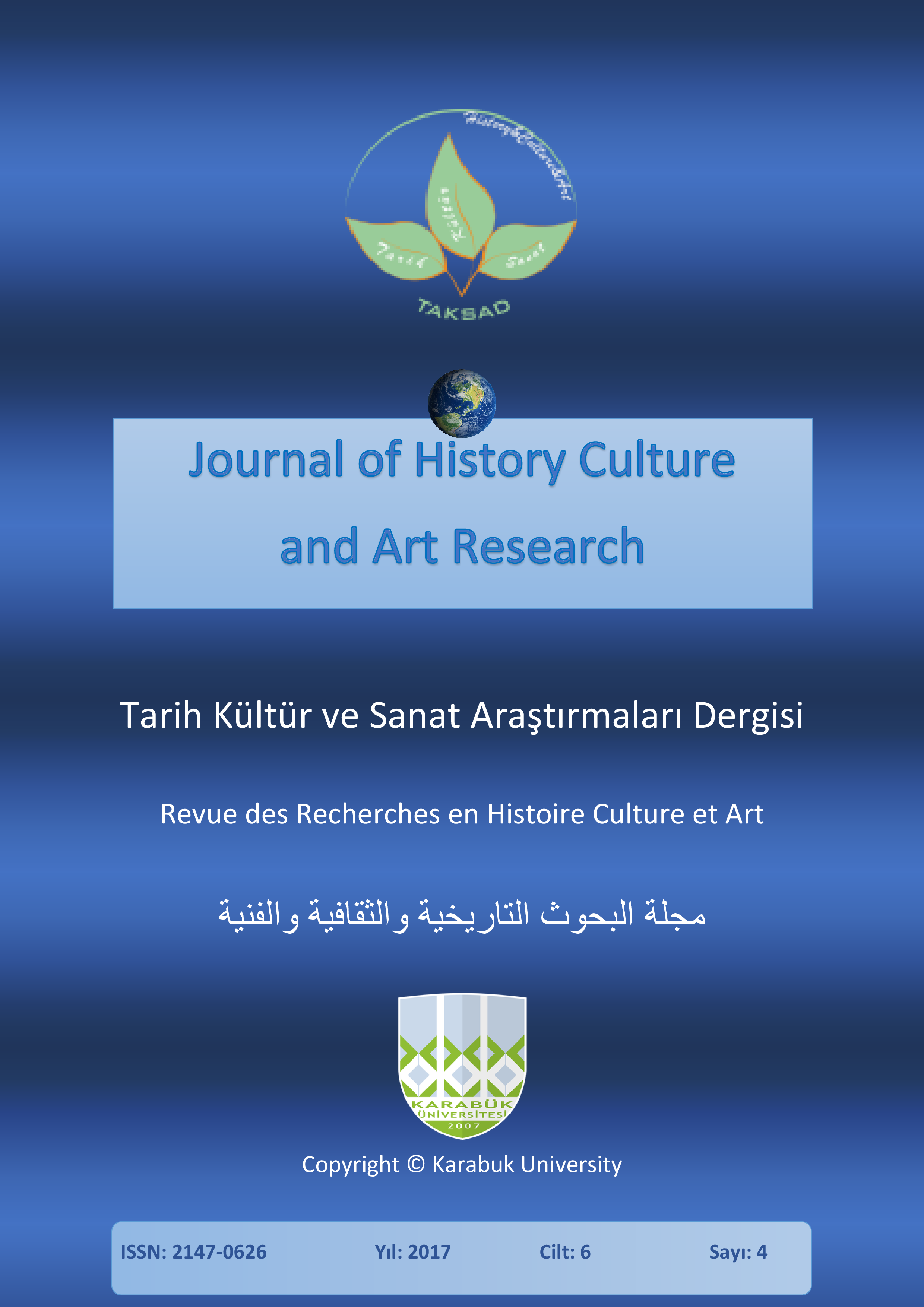Spiritual and Socio-Political Development of the Tatar People in the 19th – Early 20th Centuries
DOI:
https://doi.org/10.7596/taksad.v6i4.1152Keywords:
History, Ethnic historiography, Society, Identity, Historical and cultural heritage, National studies, Tatars, Islamic studies.Abstract
A special place in the spiritual heritage of the Tatar people belongs to the historical thought of the late XIX – early XX centuries. Tatar historians achieved significant results in the reconstruction and study of the national past in a short time. However, there is no works "where the formation and development of the Tatar historical science of the late XIX-early XX centuries would be considered specially”. Systematized study of the historical thought of the Tatars of the period of Jadidism, the identification of features, trends, directions of its development remains an actual task of modern science. This paper is aimed at investigating the specific features of the spiritual and social and political development of the Tatar people at the end of the XIX - beginning of the XX centuries. The leading method for the investigation of this problem is the comparative-historical one, which includes historical comparisons, and also gives the opportunity to study both historiographic facts relating to a particular historical situation and the phenomena of historiography in their qualitative change, contributing to the elucidation of the laws of the development of historical thought. The main results: the development of the historical thought of the Tatar intelligentsia during the period of Jadidism was generalized for the first time, the features of the development of historical knowledge and the formation of the foundations of historical science in the Tatars at the end of the XIX - beginning of the XX centuries were singled out, its main directions were identified, their problems and development tendencies were shown. Bringing around a wide range of sources and taking into account the estimates existing in the literature, the authors attempted to conduct integrated study and analysis of the discussions on the ethnonym and ethnic self-identification that played an important role in the formation of the historical and national identity of the Tatars.
References
Amirkhanov, R. U. (1992). Some features of the development of public education in the Tatars in the pre-October period. Public education of the Tatars in the pre-October period. Kazan: IALI.
Bennigsen, A. (1995). Muslims in the USSR: (Chapters from the book). Panorama-forum, 2, 77-86.
Fuks, K. (1991). Kazan Tatars in statistical and ethnographic relations. A brief history of Kazan. The reprinted reproduction of the editions of 1844 and 1905. With the attachment of the preface by N.F. Katanova to the edition of 1914. Kazan: TIAK Foundation.
Khasanov, M. Kh. (1997). The phenomenon of Russian Islam. Islam in the Tatar world: History and modernity: materials of the International symposium, Kazan, April 29-May 1, 1996. Kazan: Panorama-Forum, 147-159.
Makhmutova, A. Kh. (1982). The formation of secular education among the Tatars (Struggle around the school question of 1861-1917). Kazan: Publishing house of Kazan University.
Mardzhani, Sh. (1989 [1900]). Information involved in the history of Kazan and Bulgar (Mustafad al-akbar fi ahvali Kazan va Bulgar). V. 2. A modern edition of the work in the Tatar language. Kazan: Tat. kit. neshr.
Usmanov, M. A. (1990). Results and prospects of archaeographical work at Kazan University. Kazan: Publishing house of Kazan University.
Downloads
Published
How to Cite
Issue
Section
License
All papers licensed under Creative Commons 4.0 CC-BY.- Share — copy and redistribute the material in any medium or format
- Adapt — remix, transform, and build upon the material for any purpose, even commercially.
Under the following terms:
Attribution — You must give appropriate credit, provide a link to the license, and indicate if changes were made. You may do so in any reasonable manner, but not in any way that suggests the licensor endorses you or your use.
- No additional restrictions — You may not apply legal terms or technological measures that legally restrict others from doing anything the license permits.







